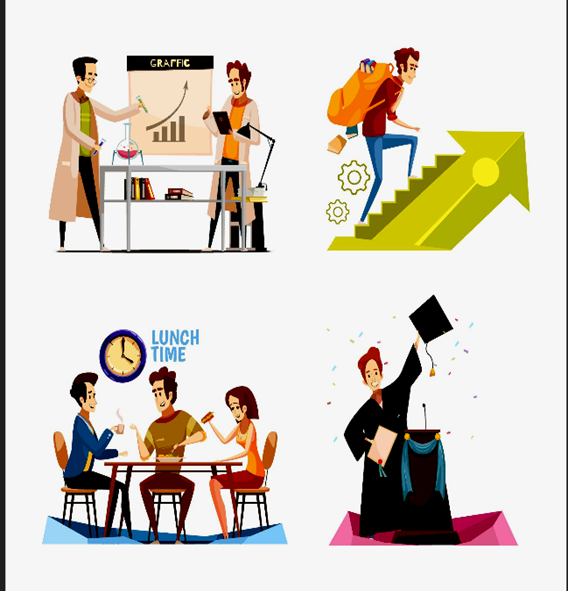Articles and Trivia
Write an articleExploring Career Paths During College

College is an exciting yet pivotal phase in life where students have the opportunity to shape their future. Exploring career paths during this time is essential to align one’s interests, skills, and aspirations with potential professions. By taking proactive steps, students can make informed decisions about their careers and set a strong foundation for success.
Why Career Exploration is Important
Exploring career paths during college allows students to gain clarity about their goals and understand the opportunities available in their fields of interest. It helps them identify their strengths and weaknesses, build relevant skills, and make well-informed choices about their future. Early career exploration also minimizes the risk of pursuing unsuitable professions and ensures a smoother transition into the workforce.
Steps to Explore Career Paths in College
-
Self-Assessment
Reflect on your interests, values, and skills. Tools like personality tests or career assessments can provide insights into potential career options. -
Engage in Internships
Internships offer hands-on experience, allowing students to understand workplace dynamics and explore various roles in their chosen fields. -
Seek Guidance from Mentors
Professors, career counselors, and industry professionals can provide valuable advice and insights about different career paths. -
Participate in Networking Events
Attend job fairs, workshops, and alumni meetups to connect with professionals and learn about career opportunities in your industry. -
Gain Real-World Experience
Volunteering, part-time jobs, or freelancing can help you develop practical skills while exploring diverse industries. -
Leverage Online Resources
Platforms like LinkedIn, Coursera, and industry-specific blogs can provide valuable information about trends, roles, and required skills. -
Join Student Organizations
Clubs and societies related to your interests can offer exposure to real-world challenges and opportunities to hone leadership and teamwork skills.
Benefits of Career Exploration in College
Exploring career paths during college not only builds confidence but also helps students develop essential skills like problem-solving, adaptability, and communication. It broadens perspectives and ensures alignment between academic pursuits and professional goals. Additionally, it prepares students for internships, interviews, and future roles with a deeper understanding of their industry.
Conclusion
Career exploration during college is a vital step toward personal and professional growth. By actively engaging in internships, networking, and self-assessment, students can uncover their passions and chart a fulfilling career path. This proactive approach ensures that students are not only prepared for the job market but also equipped to make meaningful contributions to their chosen fields.


